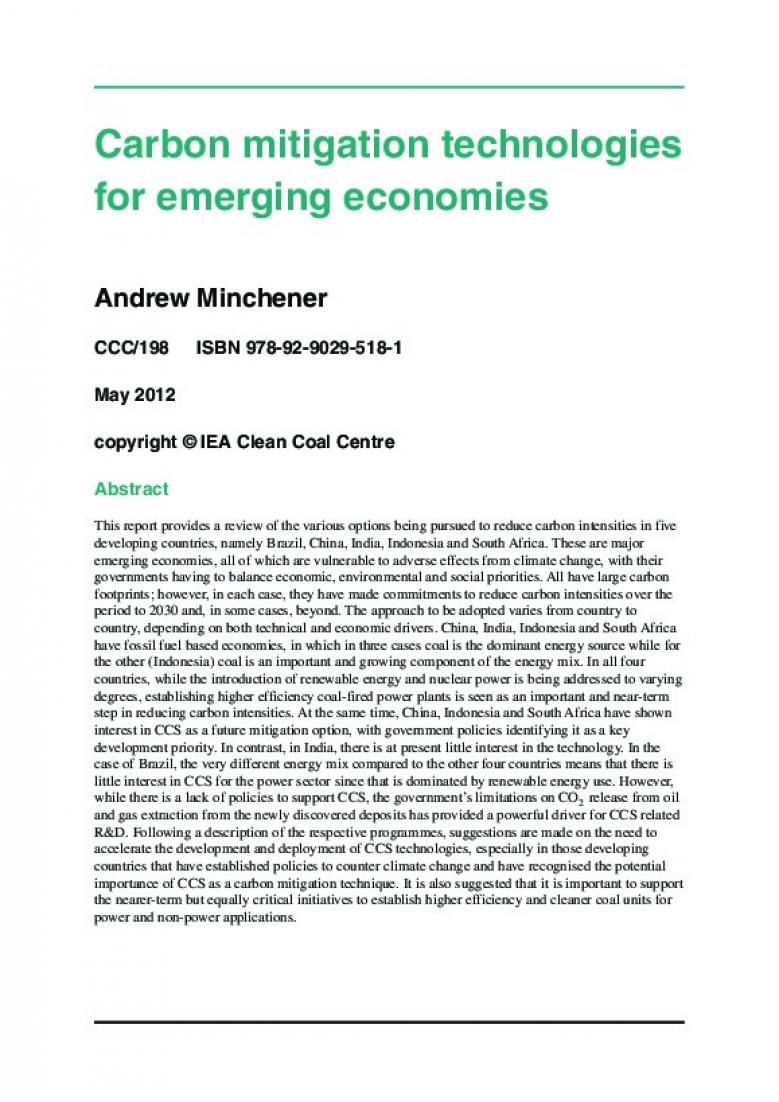CCC/198 ISBN 978-92-9029-518-1
May 2012
copyright © IEA Clean Coal Centre
Abstract
This report provides a review of the various options being pursued to reduce carbon intensities in five
developing countries, namely Brazil, China, India, Indonesia and South Africa. These are major
emerging economies, all of which are vulnerable to adverse effects from climate change, with their
governments having to balance economic, environmental and social priorities. All have large carbon
footprints; however, in each case, they have made commitments to reduce carbon intensities over the
period to 2030 and, in some cases, beyond. The approach to be adopted varies from country to
country, depending on both technical and economic drivers. China, India, Indonesia and South Africa
have fossil fuel based economies, in which in three cases coal is the dominant energy source while for
the other (Indonesia) coal is an important and growing component of the energy mix. In all four
countries, while the introduction of renewable energy and nuclear power is being addressed to varying
degrees, establishing higher efficiency coal-fired power plants is seen as an important and near-term
step in reducing carbon intensities. At the same time, China, Indonesia and South Africa have shown
interest in CCS as a future mitigation option, with government policies identifying it as a key
development priority. In contrast, in India, there is at present little interest in the technology. In the
case of Brazil, the very different energy mix compared to the other four countries means that there is
little interest in CCS for the power sector since that is dominated by renewable energy use. However,
while there is a lack of policies to support CCS, the government’s limitations on CO2 release from oil
and gas extraction from the newly discovered deposits has provided a powerful driver for CCS related
R&D. Following a description of the respective programmes, suggestions are made on the need to
accelerate the development and deployment of CCS technologies, especially in those developing
countries that have established policies to counter climate change and have recognised the potential
importance of CCS as a carbon mitigation technique. It is also suggested that it is important to support
the nearer-term but equally critical initiatives to establish higher efficiency and cleaner coal units for
power and non-power applications.
| Attachment | Size |
|---|---|
| 793.45 KB |


